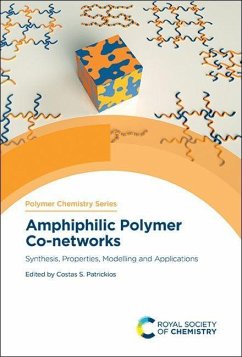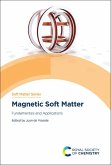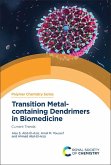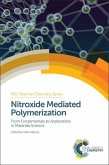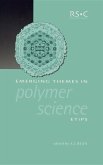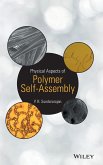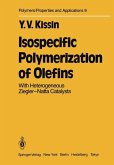Amphiphilic polymer co-networks (APCNs) are a type of polymeric hydrogel, their hydrophobic polymer segments and hydrophilic components produce less aqueous swelling, giving better mechanical properties than conventional hydrogels. This new class of polymers is attracting increasing attention, resulting in further basic research on the system, as well as new applications. This book focuses on new developments in the field of APCNs, and is organised in four sections: synthesis, properties, applications and modelling. Co-network architectures included in the book chapters are mainly those deriving from hydrophobic macro-cross-linkers, representing the classical approach; however, more modern designs are also presented. Properties of interest discussed include aqueous swelling, thermophysical and mechanical properties, self-assembly, electrical actuation, and protein adsorption. Applications described in the book chapters include the use of co-networks as soft contact lenses, scaffolds for drug delivery and tissue engineering, matrices for heterogeneous biocatalysis, and membranes of controllable permeability. Finally, an important theory chapter on the modelling of the self-assembly of APCNs is also included. The book is suitable for graduate students and researchers interested in hydrogels, polymer networks, polymer chemistry, block copolymers, self-assembly and nanomaterials, as well as their applications in contact lenses, drug delivery, tissue engineering, membranes and biocatalysis.
Hinweis: Dieser Artikel kann nur an eine deutsche Lieferadresse ausgeliefert werden.
Hinweis: Dieser Artikel kann nur an eine deutsche Lieferadresse ausgeliefert werden.

